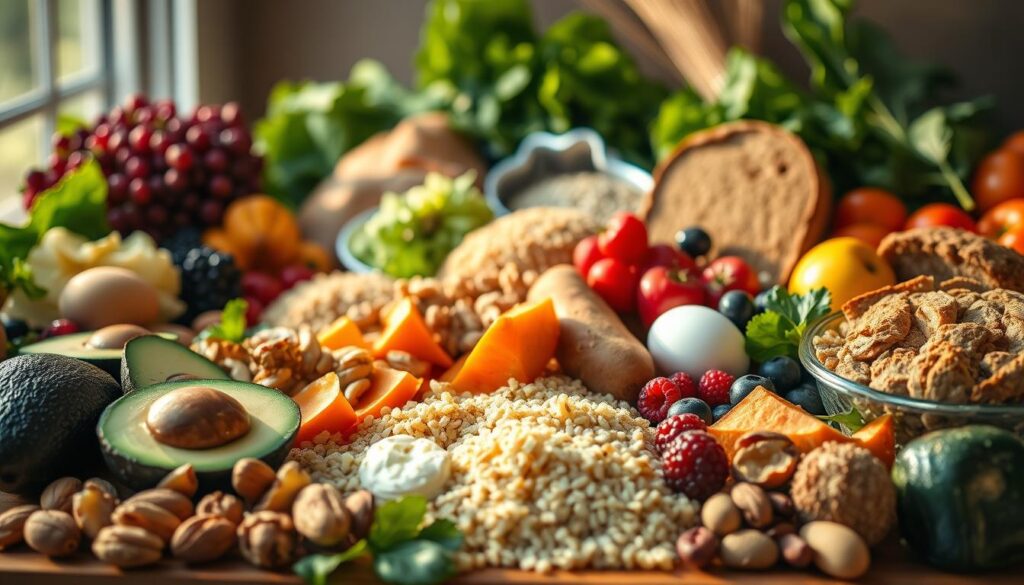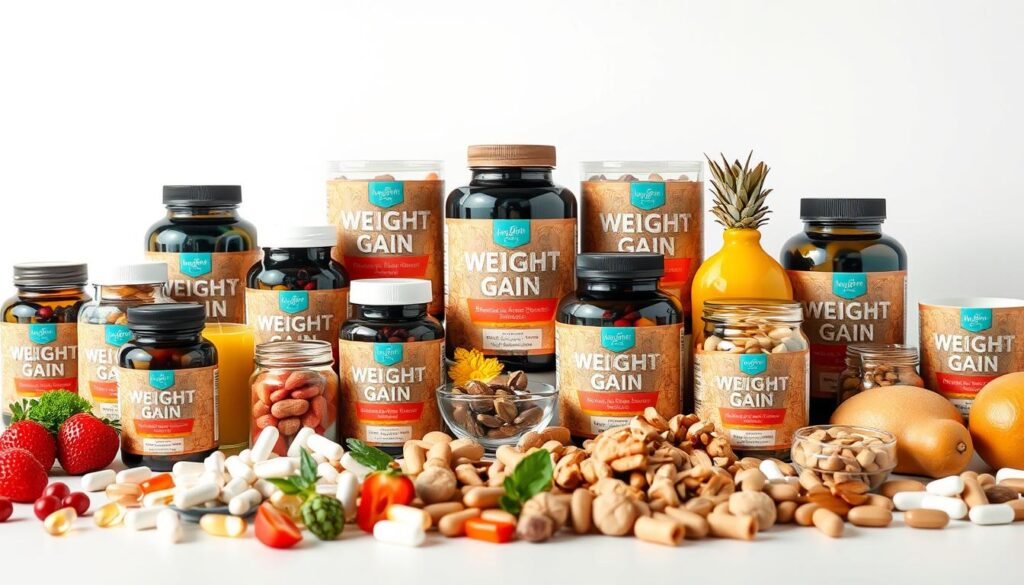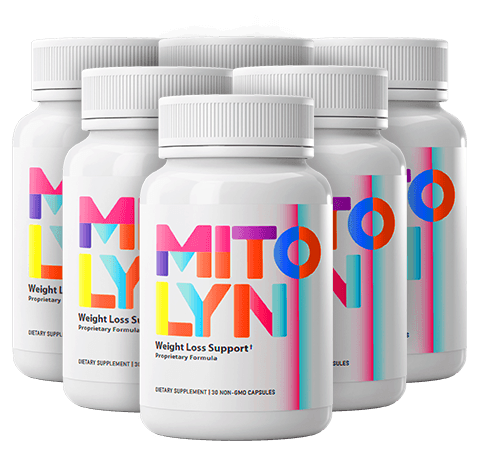
Ever felt like you don’t fit in because you’re too thin? Or worried you’re tired all the time because you’re underweight? Gaining weight healthily is more than just getting bigger. It’s about feeling strong, full of energy, and supported by your body.
Maybe you’re getting better from an illness, trying to get better at sports, or just want to build muscle. Gaining weight healthily takes time and a good plan. Being underweight can mean missing out on important vitamins, risking weak bones, or feeling really tired. But, you don’t have to stay that way.
Healthy weight gain tips are about adding muscle, not just fat. This journey is not a race. A 2020 study found that protein helps build lean muscle, and eating 500 extra calories a day can add 15 pounds in six months.
But, it’s easy to get stuck, especially if you’ve tried eating too much junk or skipping workouts. The real secret? Making smart choices. This means eating nutrient-rich foods, doing resistance training, and getting help from experts like dietitians. Let’s make a plan that works with your body, not against it.
Key Takeaways
- Slow and steady wins: Add 300–500 calories daily for steady progress.
- Protein matters: Aim for at least 50 grams daily to fuel muscle growth.
- Focus on muscle, not fat: Resistance training builds strength, not just size.
- Consult a dietitian to create a plan tailored to your needs.
- Healthy weight gain is a marathon—prioritize balance over quick fixes.
Understanding Healthy Weight Gain vs. Unhealthy Weight Gain
Knowing how to gain weight is key. It’s about adding muscle, not just fat. For skinny people, it starts with understanding your body’s needs. Let’s look at what works and what doesn’t.
The Difference Between Adding Muscle and Adding Fat
Muscle burns calories, even when you’re not moving. This boosts your metabolism. On the other hand, fat, especially around the waist, can increase disease risks. Aim for a balance:
- Muscle gain: Strength training + protein-rich meals
- Fat gain: Excess empty calories from junk food
Why Traditional “Bulking” Methods Can Be Harmful
“Uncontrolled eating leads to 3x higher heart disease risk in those who gain 11–22 pounds post-20, per the Nurses’ Health Study.”
Eating too much junk or sugary drinks adds fat, not muscle. This can hurt your digestion and energy. For healthy weight gain, eat nutrient-dense foods like nuts, avocados, and whole-grain pasta.
Setting Realistic Expectations for Your Body Type
| Body Type | Goal | Approach |
|---|---|---|
| Ectomorph (slim) | Muscle focus | Small, frequent high-calorie meals |
| Mesomorph (athletic) | Maintain balance | Strength training + balanced diet |
| Endomorph (stocky) | Lean mass | Controlled calorie surplus with cardio |
Your genetics play a role. Accept your body’s natural shape and work with it. Compare your progress, not others’. Small, steady gains are better than drastic changes.
Why Some People Struggle to Gain Weight
For many, weight gain for skinny people feels like an uphill battle. Your body’s biology, health conditions, or daily habits might work against you. Let’s break down the reasons:
- Fast metabolism: Some bodies burn calories so quickly that even eating more doesn’t add pounds.
- Medical conditions: Hyperthyroidism speeds metabolism, while IBD or diabetes can disrupt nutrient absorption.
- Medications: Antibiotics or chemotherapy drugs may reduce appetite or cause digestive issues.
- High NEAT: Non-Exercise Activity Thermogenesis—like fidgeting or pacing—burns extra calories without you even noticing.

The CDC notes that a BMI below 18.5 marks underweight, but numbers alone don’t tell the full story. Emotional stress or anxiety can shrink your appetite, making meals feel unappealing. If you’ve tried adding calories but still struggle, it’s critical to rule out health issues first. A doctor can check for thyroid imbalances or digestive disorders that hinder progress.
“Persistent underweight status may signal an underlying condition requiring medical attention.”
While how to gain weight healthy is often framed as “just eat more,” the reality for many involves addressing these hidden factors. Small steps like nutrient-packed snacks or calorie-boosting condiments can help, but understanding your body’s unique challenges is key. Your next steps? Start by tracking your calorie intake, consult a healthcare provider for tests, and focus on quality foods that fuel—not just fill.
How to Gain Weight Healthy: The Fundamental Principles
Healthy weight gain starts with smart strategies. These nutritional tips for healthy weight gain focus on balanced choices. They align with your lifestyle. Let’s break down the essentials to build muscle and energy safely.

Caloric Surplus Made Simple: To gain weight, eat 300–500 extra calories daily. Use tools like USDA’s MyPlate to find your maintenance needs. Then, add this surplus. Avoid extremes—sudden spikes over 1,000 calories can lead to fat storage. For those with conditions like chronic lung disease, adding 250–500 calories daily helps prevent unwanted weight loss.
Macronutrient Balance: Prioritize protein (1.6–2.2g per kg of body weight) to fuel muscle. Pair with complex carbs (oats, whole grains) and healthy fats (avocados, nuts). Focus on nutrient-dense foods like eggs, cottage cheese, and fatty fish. For example, swap skim milk for whole milk to boost calories and vitamins.
- Protein-rich foods: chicken, lentils, beans
- Healthy fats: nuts, seeds, olive oil
- Calorie-dense snacks: yogurt with granola, smoothies with almond butter
Meal Timing Tactics: Eat 5–6 smaller meals daily to avoid feeling overwhelmed. Post-workout, pair protein with carbs (like Greek yogurt and banana) to rebuild muscle. Avoid drinking water right before meals to leave room for calorie-rich foods.
Track Without Stress: Monitor progress through weekly weigh-ins, strength gains, and photos—not daily fluctuations. Use apps like MyFitnessPal to log meals without fixatinging on perfection. Celebrate small wins, like adding an extra handful of nuts to your routine.
Following these steps turns healthy eating into a sustainable habit. Focus on whole foods first, and use supplements like Ensure or Boost only when needed. Small, consistent changes today pave the way for lasting results.
Creating a Sustainable Meal Plan for Weight Gain
Starting a meal plan for healthy weight gain is easy. Begin with small changes. Focus on nutritional tips for healthy weight gain that fit your appetite. Eating 5–6 smaller meals daily helps you eat more without feeling too full.
- Pair meals with calorie-dense snacks like trail mix or yogurt with granola.
- Add healthy fats to dishes—try avocado slices on toast or olive oil in soups.
- Choose whole foods first, like oatmeal with peanut butter or smoothies with protein powder.
Use this sample 2,500-calorie template as a starting point, adjusting portions for your goals:
| Meal | Calories | Protein (g) | Carbs (g) | Fat (g) | Fiber (g) | Sodium (mg) |
|---|---|---|---|---|---|---|
| Breakfast | 600 | 25 | 60 | 25 | 8 | 450 |
| Lunch | 650 | 30 | 50 | 30 | 10 | 500 |
| Snack | 300 | 10 | 30 | 15 | 4 | 200 |

Adjust portions using these guidelines: For 2,000 calories, reduce nut butters; for 3,000+, add a Greek yogurt parfait or extra almonds. Always choose nutrient-rich foods over empty calories. If you find it hard to eat enough, try mixing mass gainer shakes between meals. Remember, healthy weight gain tips work best when you enjoy your food and eat gradually. Don’t force yourself to eat big meals if they make you uncomfortable.
Best Foods for Healthy Weight Gain
Choosing the right foods is key to best foods for healthy weight gain. Look for foods that are full of nutrients and add calories. Here are the top picks to help you gain weight in a healthy way.

Nutrient-Dense Carbohydrates
Carbs give you quick energy. Choose whole grains like brown rice (368 calories per 100g) and oats. Also, starchy veggies like sweet potatoes and winter squash are good for fiber and vitamins.
Try this combo:
- Steamed sweet potatoes with almond butter (129 calories per 20g serving)
- Oatmeal topped with banana slices and chia seeds
Quality Protein Sources
Build muscle with lean and fatty proteins:
- Grilled chicken breasts (6g protein per egg-sized portion)
- Fatty fish like salmon for omega-3s
- Whole eggs (78 calories each, use yolks in moderation if heart-healthy)
Healthy Fats That Pack a Caloric Punch
Add calorie-dense fats wisely:
- Nuts: Trail mix (160-200 calories per ounce)
- Avocado halves (250 calories each, drizzle with olive oil for extra calories
- Full-fat yogurt with honey (300-calorie snack option)
Calorie-Rich Smoothies and Beverages
“Liquid calories count too—aim for nutrient density,” says registered dietitian Emily Carter.
Try these blends:
Blend: Greek yogurt (150 cal) + banana + peanut butter (250 cal/tbsp) + protein powder. Add almond milk for creaminess. Drink this 300-500 calorie shake between meals.
Pair these choices with mindful eating habits. Aim for 300-500 extra daily calories through balanced portions. Track progress without obsessing—your body thrives on consistent, nourishing choices.
Strategic Exercise for Building Lean Muscle Mass
Resistance training is key to gain lean muscle mass while avoiding excess fat. Focus on effective weight gain strategies that prioritize compound moves like squats, deadlifts, and rows. These exercises engage multiple muscle groups, boosting growth without overcomplicating your routine.

Start with 2-3 weekly sessions, aiming for 3-4 sets of 8-12 reps per exercise. Prioritize proper form over heavy weights—this prevents injury and ensures muscles work effectively. Gradually increase weights or reps over time to trigger growth through progressive overload.
- Compound Movements: Squats, lunges, and presses build strength efficiently.
- Recovery Time: Allow 48 hours between training the same muscle groups.
- Protein Intake: Aim for 1 gram of protein per pound of body weight daily.
Lighter weights with higher reps can be as effective as heavy lifting for muscle growth, according to recent studies.
Pair workouts with a pre-workout shake containing 10-20g protein and 35g carbs to fuel sessions. Rest 7-9 hours nightly—muscles repair during sleep. Mix isometric holds (like planks) with dynamic lifts for balanced gains. And remember: consistency matters more than intensity. Adjust your routine weekly to keep challenging your muscles!
Gain Weight Naturally: Lifestyle Adjustments That Make a Difference
Healthy weight gain tips often talk about food and exercise. But, lifestyle habits like sleep and stress management are key too. Small changes can make a big difference in your progress.
Sleep Optimization for Growth and Recovery
Quality sleep helps repair muscles and balance hormones. Aim for 7-9 hours each night. Turn off screens before bed and try calming activities like reading or warm tea.  A consistent bedtime and cool room temperature help your body grow and use nutrients well.
A consistent bedtime and cool room temperature help your body grow and use nutrients well.
Stress Management Techniques
Stress can mess with hunger signals and muscle growth. Here are some tips to lower stress:
- Practice 10-minute breathing exercises daily.
- Take nature walks to lower cortisol levels.
- Connect with friends weekly to boost mood and appetite.
Finding Balance Between Consistency and Flexibility
Stick to your plan most days but be flexible. Carry high-calorie snacks for busy times and enjoy treats now and then. It’s not about being perfect—it’s about steady, sustainable steps toward your goals.
Common Mistakes to Avoid When Trying to Gain Weight
Avoid these pitfalls to stay on track with effective weight gain strategies and nutritional tips for healthy weight gain. Small missteps can slow progress or harm your health.
- Overdoing empty calories: Snacking on candy, sugary drinks, or processed snacks adds calories but lacks nutrients. Opt for whole foods like nuts, avocado, or oatmeal instead.
- Skipping meals: Missing meals slows metabolism. Aim for 5-6 smaller meals daily to steadily boost intake without overwhelming your appetite.
- Ignoring protein: Muscle growth needs protein. Include 20-30g of protein in each meal—think eggs, Greek yogurt, or lentils.
- Too much cardio: Excessive cardio burns calories meant for gain. Balance with strength training to build muscle, not burn it away.
- Skipping sleep: Less than 7-9 hours hampers muscle repair. Prioritize rest to support your efforts.

Don’t rely on supplements as a crutch. Whole foods provide fiber, vitamins, and minerals artificial products often lack. Track your meals with an app to stay consistent, but avoid obsessing over numbers. Listen to your body—if you feel sluggish, adjust your macros. Nutritional tips for healthy weight gain focus on balance, not extremes. For example, pair protein with complex carbs like sweet potatoes post-workout to fuel muscles. If progress stalls, consult a dietitian to personalize your plan. Remember, gradual changes lead to lasting results.
Nutritional Supplements for Healthy Weight Gain
When picking healthy weight gain supplements, choose ones that fit your diet goals. Supplements can help fill diet gaps but don’t replace whole foods. Here’s what works best.

Protein Supplements: Types and Recommendations
- Whey protein: It’s fast-absorbing and full of amino acids. It’s best after working out (e.g., Muscle Milk Pro Series Gainer has 42g protein per serving).
- Plant-based: IronVegan Athlete’s Gainer has 42g protein. It’s good for vegans but might need mixing with other sources for all amino acids.
- Casein: It’s slow-digesting, helping muscles at night (try NOW Sports products).
Mass Gainers: When to Use Them
True Athlete Natural Gainer (510 calories/serving) or Muscle Milk Pro Series (650 calories) can add calories when you’re not hungry. Look for products with ≥20g protein and ≤10g saturated fats. Here’s a comparison:
| Product | Calories | Price/Serving |
|---|---|---|
| IronVegan Athlete’s Gainer | 720 | $$ |
| Muscle Milk Pro Series | 650 | $$ |
Try making your own like nut butter oats or Greek yogurt smoothies. They save money and let you control what’s in them.
Creatine and Evidence-Based Aids
Creatine monohydrate (e.g., Klean Athlete) increases strength and muscle. Start with 3–5g daily. Stay away from untested “testosterone boosters.”
Supplements to Avoid
Steer clear of products with too many artificial additives or unproven claims. Always look for NSF or Informed-Choice certifications.
When to Consult a Healthcare Professional About Weight Gain
If you’re having trouble gaining weight for skinny people and can’t seem to gain weight naturally, it’s time to get help. Here’s when you should:

- Unexplained weight loss or inability to gain muscle
- Ongoing digestive issues affecting eating
- Sudden changes in appetite or metabolism
- Family history of metabolic disorders
| Red Flag | Action to Take |
|---|---|
| Rapid, unintentional weight loss | See a doctor immediately |
| Chronic fatigue with no progress | Consult a dietitian |
| Unexplained hormonal changes | Request blood tests |
Doctors can find problems like thyroid issues, PCOS, or digestive problems that stop you from gaining weight. Studies show over 60% of patients who talk about weight goals with doctors do better.
“Professional guidance ensures your approach aligns with your unique health needs.”
Take food journals, workout logs, and medication lists to your appointments. Dietitians can make meal plans for you, and doctors can fix hormonal problems. If you’re under 18, over 60, or have an eating disorder, don’t wait.
Getting help early can prevent problems like nutrient deficiencies or a slow metabolism. Your health is important—don’t be afraid to ask for help!
Conclusion: Your Balanced Path to a Stronger, Healthier Body
Your journey to a stronger body starts with gaining lean muscle mass. Choose the best foods for healthy weight gain like nuts, eggs, and whole grains. Pair them with strength training. This builds muscle, not fat, creating lasting health benefits.
Focus on a 250–500 calorie surplus daily. Follow USDA guidelines: 50% fruits/veggies, 25% grains, 25% protein. Aim for 0.5–1 pound weekly. Also, prioritize 7–8 hours of sleep and stress management to support progress.
Track success through strength milestones and energy levels. Celebrate small wins, like adding 5 pounds to a lift or trying a new recipe. Consistency over time leads to gradual, sustainable results.
Healthy weight gain is an investment in long-term wellness. By choosing nutrient-rich foods and prioritizing muscle growth, you’re building a foundation for lasting strength and vitality. Keep moving forward with patience and purpose.














